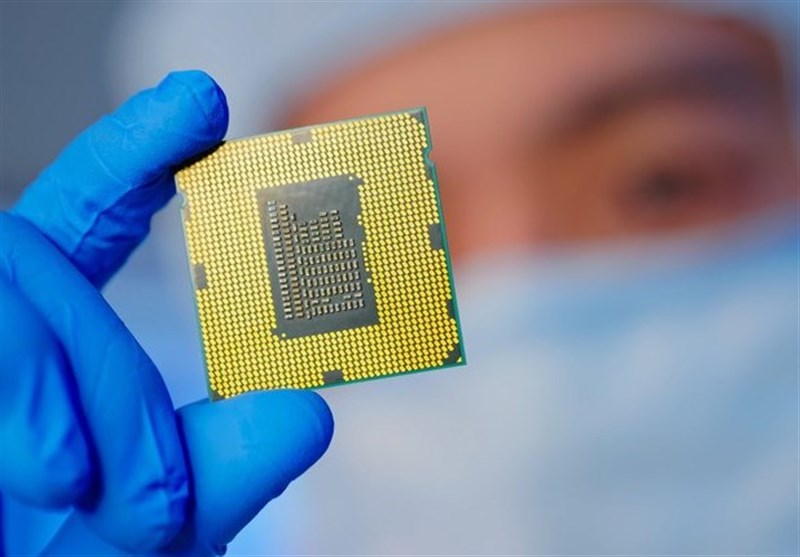Call For Change: Nvidia CEO's Appeal On AI Chip Export Restrictions

Table of Contents
The Impact of Export Restrictions on Nvidia's Business
Nvidia, a leading designer of graphics processing units (GPUs) crucial for AI development, is facing significant headwinds due to the US export controls. These restrictions primarily target Nvidia's high-performance AI chips, such as the A100 and H100, severely limiting their sale to certain regions, notably China.
-
Significant Revenue Loss: The export restrictions have already resulted in a substantial loss of revenue for Nvidia. The inability to sell its most advanced chips to a major market segment directly impacts its financial performance and growth projections. Analysts have predicted considerable downward revisions in earnings forecasts as a direct result.
-
Supply Chain Disruption: The restrictions have created significant disruptions in Nvidia's supply chain. The company needs to adapt its manufacturing and distribution strategies to comply with these regulations, adding complexity and cost. This includes navigating intricate licensing processes and potentially altering production timelines.
-
Market Share Erosion: While Nvidia maintains a dominant position in the AI chip market, these restrictions could allow competitors less affected by the export controls to gain market share, particularly in regions where access to Nvidia's top-tier chips is now limited. This could lead to a long-term erosion of Nvidia's competitive advantage.
-
Financial Implications: The financial consequences for Nvidia are substantial, impacting not only its bottom line but also investor confidence. The uncertainty surrounding future export policies creates volatility in the stock market and affects long-term investment strategies.
The Broader Implications for Global AI Development
The impact of AI chip export restrictions extends far beyond Nvidia's financial performance. These restrictions have serious implications for the advancement of AI globally.
-
Hindered Global Collaboration: The restrictions impede international collaboration in AI research and development. The free exchange of ideas and technology is essential for rapid progress, and these limitations create significant barriers to this collaboration.
-
Slower Technological Advancement: By limiting access to advanced AI chips, the restrictions inevitably slow down the overall pace of technological advancement in AI. This impacts the development of crucial applications across various sectors, from healthcare and finance to climate modeling and scientific discovery.
-
Global Competitiveness Concerns: The restrictions could have significant consequences for global competitiveness in the AI sector. While the US aims to maintain its technological edge, these measures could inadvertently benefit other countries that are less restricted, potentially shifting the balance of power in the AI landscape.
-
Impact on Scientific Research: Scientific research heavily relies on access to powerful computing resources. Restricting access to advanced AI chips hampers research efforts in numerous fields, slowing down progress on critical issues.
Jensen Huang's Arguments and Proposed Solutions
Nvidia CEO Jensen Huang has publicly voiced his concerns about the negative impact of these export restrictions. His arguments center around the need for a balanced approach that considers both national security and the need for global technological advancement.
-
Key Arguments: Huang argues that the restrictions are counterproductive, hindering innovation and potentially weakening US competitiveness in the long run. He emphasizes the need for a more nuanced approach that doesn't stifle the development of AI technology.
-
Proposed Solutions: While not explicitly outlining specific solutions, Huang advocates for a more collaborative and less restrictive regulatory framework. He implicitly suggests a system that balances national security concerns with the need for global access to advanced technology.
-
Policy Recommendations: Huang’s appeals indirectly call for policy reforms and licensing adjustments that facilitate the sale of advanced AI chips while mitigating national security risks through improved monitoring and licensing systems.
-
Feasibility and Effectiveness: The feasibility of Huang's implied recommendations depends on the willingness of policymakers to adopt a more nuanced approach. The effectiveness would depend on the design and implementation of alternative licensing and export control mechanisms.
The Ethical and Geopolitical Considerations
The AI chip export restrictions raise significant ethical and geopolitical concerns.
-
Ethical Implications: Restricting access to AI technology raises ethical questions about equitable access to beneficial AI applications. This limits the potential for AI to address global challenges in developing countries.
-
Geopolitical Landscape: These restrictions significantly impact the geopolitical landscape, potentially fueling a technology arms race and creating greater tensions between nations. It risks exacerbating existing geopolitical rivalries.
-
Technology Warfare: The restrictions are viewed by some as a form of technology warfare, hindering the development of AI capabilities in certain regions while bolstering those of others. This could destabilize the international balance of power and lead to further escalation.
Conclusion
The debate surrounding AI chip export restrictions highlights a crucial tension between national security concerns and the need to foster global innovation. Nvidia's challenges, as articulated by Jensen Huang, serve as a case study illustrating the far-reaching consequences of these policies—impacting not only businesses but also scientific progress and global competitiveness. The restrictions on AI chip exports risk creating a fragmented and less innovative AI landscape, ultimately hindering the potential benefits of this transformative technology for all of humanity. The debate surrounding AI chip export restrictions is far from over. Understanding the implications of these policies and advocating for a balanced approach is crucial for fostering innovation and ensuring a future where AI benefits all of humanity. Join the conversation and advocate for sensible solutions to the challenges presented by these AI chip export restrictions.

Featured Posts
-
 Lotto 6aus49 Vom 12 April 2025 Lottozahlen Und Gewinnzahlen
May 02, 2025
Lotto 6aus49 Vom 12 April 2025 Lottozahlen Und Gewinnzahlen
May 02, 2025 -
 Nebraskas Voter Id Campaign A National Award Winner
May 02, 2025
Nebraskas Voter Id Campaign A National Award Winner
May 02, 2025 -
 Compensation For Play Station Christmas Voucher Glitch Free Credit From Sony
May 02, 2025
Compensation For Play Station Christmas Voucher Glitch Free Credit From Sony
May 02, 2025 -
 Mental Health Claim Rates High Costs And Stigma Limit Access
May 02, 2025
Mental Health Claim Rates High Costs And Stigma Limit Access
May 02, 2025 -
 Christopher Stevens Critiques Michael Sheens Channel 4 Debt Giveaway
May 02, 2025
Christopher Stevens Critiques Michael Sheens Channel 4 Debt Giveaway
May 02, 2025
